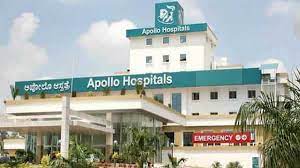By Hassan Zaggi
An Indian-based hospital, Apollo Proton Cancer Centre (APCC), has disclosed that it has uncovered a new technology for the treatment of advanced cases of cancer with almost 100 per cent precision with less damage to tissues.
The new technology which is christened Proton Beam Therapy, according to an official of the hospital, has been tested and proven to be very effective in the treatment of all types of cancers in different parts of the world.
It would be recalled that cancer remains top on the list of diseases that are on the rise in the world, particularly, in developing nations, including Nigeria.
According to the World Health Organisation’ (WHO) 2020 report, cancer is on top of the list of killer diseases with nearly 10 million deaths yearly.On the other hand, the Global Cancer Observatory, revealed that Nigeria has one of the highest cancer mortality rates in the world, with approximately 4 out of 5 cases resulting in death.
At a media interaction in Abuja on Thursday, Senior Consultant Radiation Oncologist at the Apollo Proton Cancer Centre (APCC),Dr. Sapna Nangia, noted thatthe Proton Beam Therapy has been used to treat complicated cancer cases with the utmost precision, and with successful personal experiences.
She explained that the Proton therapy is a radiation therapy that uses tiny particles called protons as excellent cancer cell killers, stressing that protons deliver their energy but do not damage healthy tissue in comparison to photon therapy.
“Therefore, a higher dose of radiation can be targeted at the tumour without affecting many normal healthy cells. Proton therapy can be effective in treating tumours of the brain, head and neck, central nervous system, lung, prostate, and gastrointestinal system.
“Proton therapy is often the preferred option for treating solid tumours in children because protons can be controlled precisely so there is less radiation to normal tissues, help prevent serious complications and lessen the chance of secondary tumours.
“Proton Therapy has multiple advantages that target tumours and cancer cells with precision and minimal exit dose thus reducing overall toxicity. It also reduces the probability and/or severity of short-and long-term side effects on surrounding healthy tissues and organs. It is favourable in treating recurrent tumours, even in patients who have already received radiation,” she explained.
Commenting on the therapy and its uses, the Senior Consultant, Radiation Oncology program for Head Neck, Breast, and Gynaecological Cancers at the Apollo Proton Cancer Centre, Chennai, Dr. Sapna Nangia, said: “Proton Therapy has emerged as an excellent treatment modality for a number of cancers.
“One of the most common sites being treated at the Apollo Proton Cancer Centre is cancers of the head and neck. Patients undergoing Proton Therapy have significantly less discomfort during and after treatment and are less likely to require hospital admission, tube feeding, or treatment interruption.
“In patients with tumours involving the skull base, Protons improve the safety of critical organs like the visual pathway and the brain stem.
“At Apollo Proton Cancer Centre, we have the latest PBS technology which enables us to deliver highly focused treatments to each tumour, and each tumour is treated with protons, spot- by- spot and layer-by-layer.
“It has been proven to be successful in curing or controlling many cancers when used appropriately.”
On his part, a son of one of the patients (Ms Safiya) who passed through the procedure, Mohammed Kabir, said: “In October 2019, my mother was diagnosed with colon cancer in Dubai and she underwent surgery in the country. After taking a few sessions of chemotherapy, she returned to Nigeria.
“For a follow-up, we wanted to take her to Turkey, but all our research showed that Apollo Proton Cancer Centre was a better option considering the expertise, knowledge, and advanced technology that its equipped with.
“We could not have made a better decision as we got the best service, treatment and care at APCC.”



